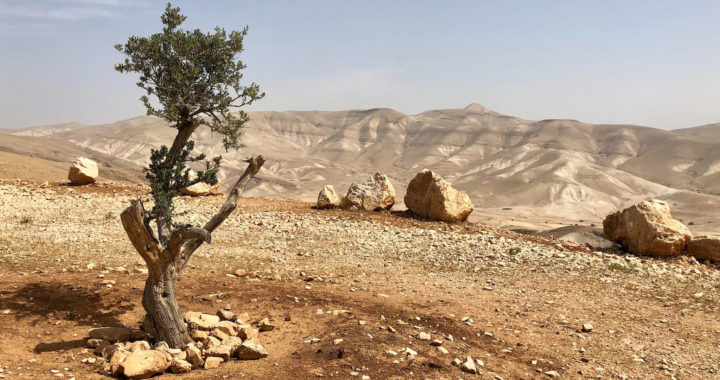Hamas, which is the acronym for Ḥarakat al-Muqāwamah al-Islāmiyyah or Islamic Resistance Movement, is a Palestinian nationalist organization and a militant Sunni-Islamic fundamentalist movement that serves as the de facto governing authority of the Gaza Strip beginning in 2007 and holds a substantial position in the Palestinian Legislative Council of the Palestinian National Authority. Several countries have designated it as a terrorist organization while other countries and organizations regarded it as a legitimate political and resistance organization. This article provides a definitive discussion of the origin of Hamas, an explainer of its purpose and ideologies, a background of the sources of funding and international political backing, and its status as a Palestinian organization and state actor.
Understanding the Origin of Hamas, its Stated Purpose, the Sources of its Funding, and Status as an Organization
Origin: Emergence from the Muslim Brotherhood
The origin of Hamas can be traced back to 1987 soon after a sustained series of protests and riots called the First Palestinian Intifada was carried out by a group of Palestinians in the Palestinian Territories and Israel. The group that started what is now known as Hamas was specifically an offshoot of the Gaza branch of the transnational Sunni Islamist organization known as the Society of the Muslim Brothers or the Muslim Brotherhood.
It is important to note that the Muslim Brotherhood was founded in Egypt in 1928 as an attempt to spread Islamic values into the secular sphere and challenge the ruling order of that time. The organization first established contact in Mandatory Palestine in 1935 and inaugurated its first Palestine branches in Jerusalem and Gaza in 1945. These branches focused on social-religious reform and on restoring Islamic values in Mandatory Palestine.
Members of the Gaza branch of the Muslim Brotherhood were non-confrontational toward Israel and hostile toward the Palestine Liberation Organization. However, because of the growing frustration over the Israeli occupation of the West Bank and the Gaza Strip that began in 1967, and as part of a wave of nationalist organizations that emerged due to the Israel-Palestine conflict, the group formed Hamas to liberate Palestine from Israel.
Purpose: Changing Ideologies and Current Goals
Understanding the purpose of Hamas or the reason behind its establishment used to be confined within a reading of the first Hamas Charter which was issued in 1988. The tenet identified the organization as the Muslim Brotherhood in Palestine. It also declared that its origin stemmed from its struggle against the Jews and that its purpose was the eventual creation of an Islamic State throughout Palestine following the dissolution of Israel.
The charter contained antisemitic passages and the description of Israel as a society that is likened to the Nazis because of its purported viciousness against Palestinians. It declared that its purpose is to raise the banner of Allah while also assuring religions can coexist in security and safety. The charter also rejected the two-state solution and the Israel-Palestine conflict can only be resolved through jihad because the whole land is non-negotiable.
Leaders of Hamas and a sizeable volume of its activities had reaffirmed the ideologies stated in the first charter. However, to moderate its image and gain international support, a new charter was introduced in 2017. It no longer calls for the dissolution of Israel but still maintains the need for the liberation of Palestine. The new charter also confirms the acceptance of the borders drawn before 1967 as the basis of establishing a Palestinian state.
Funding: International Backers and Supporters
The entire operation of Hamas is funded through funding from state actors and various donation channels. It does not have the means to generate its revenues. Iran remains the primary financier with donations accounting for about 70 percent of all collected funds while additional funds are raised through various non-profit organizations across the world that support resistance movements in Palestine and the Palestinian diaspora.
Leadership in Iran has maintained an anti-American and anti-Israeli stance. Supporting Palestinian resistance movements enables it to project its sentiments and protect its geopolitical interests. Qatar is also considered one of the most important backers of Hamas. The country has transferred billions of dollars to the organization, provided it with access to military hardware, and hosted Hamas leader Khaled Meshaal.
There are significant fundraising activities in Gulf countries, Western Europe, and North America. The Federal Bureau of Investigation of the United States believed that Hamas has the largest presence in the U.S. among all other Palestinian groups with a robust network and infrastructure but its main interest centers on interfacing and working with various non-profit organizations to raise funds to support its regional operations.
Status: Operations and International Designations
Hamas operates in the Gaza Strip. It won the 2006 legislative election in Palestine and became the de facto governing authority of the Gaza Strip following the 2007 Battle of Gaza. It operates a social service wing named Dawah and a military wing called Izz ad-Din al-Qassam Brigades The organization can be likened to a political party because of the substantial position it holds in the Palestinian Legislative Council of the Palestinian National Authority.
The designation of the organization remains debated. For example, because of its armed conflict with Israeli forces and violence toward Israeli civilians, it has been designated as a terrorist organization by several countries. The United States first gave this designation in its 1993 Foreign Terrorist Organization list. Other countries have followed suit. These include Canada, the United Kingdom, Japan, Australia, and the European Union.
Other countries have considered it otherwise. A resolution in 2018 that condemned Hamas as a terrorist organization failed to pass the United Nations General Assembly. New Zealand and Paraguay only consider its military wing as a terrorist. Russia and China, as well as most countries in the Near East and the Middle East, Southeast Asia, and Africa, and several European countries also do not consider Hamas a terrorist organization.

